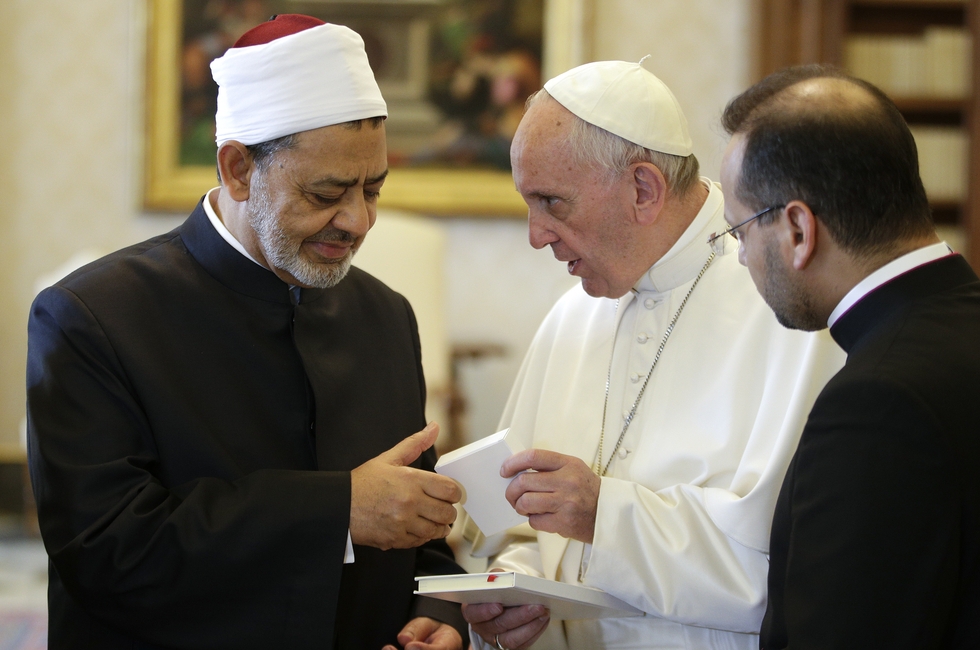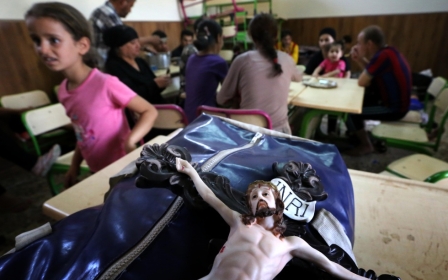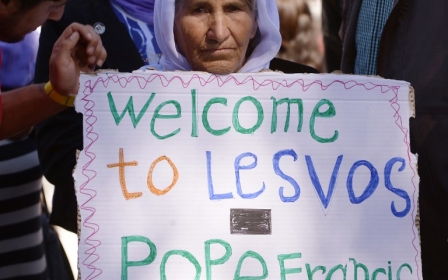Top Muslim cleric and Pope embrace in historic Vatican meeting

Pope Francis met the grand imam of Cairo's al-Azhar mosque at the Vatican on Monday in a historic encounter that was sealed with a hugely symbolic hug and exchange of kisses.
The first Vatican meeting between the leader of the world's Catholics and the highest authority in Sunni Islam marks the culmination of a significant improvement in relations between figureheads of the two faiths since Francis took office in 2013.
"Our meeting is the message," Francis said in a brief comment at the start of his meeting with Sheikh Ahmed al-Tayeb.
In a statement in al-Azhar, which also has a university, Tayeb said he had accepted Francis's invitation to "explore efforts to spread peace and co-existence”.
It said the two sides had agreed to convene a "peace conference".
Its statement quoted Tayeb as telling Francis: "We need to take a joint stance, hand in hand, to bring happiness to humanity. Divine religions were revealed to make people happy, not to cause them hardship."
The "very cordial" meeting lasted around 30 minutes, the Vatican said in a statement after the talks. In all, the imam spent just over an hour at St Peter's.
Tayeb's decision to fly to Rome, announced unexpectedly last week, followed the easing of serious tensions that beset Francis's predecessor, Benedict XVI.
Ties were badly soured when Benedict made a September 2006 speech in which he was perceived to have linked Islam to violence, sparking deadly protests in several countries and reprisal attacks on Christians.
Benedict quoted the 14th-century Byzantine emperor, Manuel II Palaiologus, as saying the Prophet Muhammad commanded his followers "to spread by the sword the faith he preached".
Monday's visit was effectively the long-delayed reciprocal meeting and the Vatican said that both clerics had "underlined the great significance of this new meeting".
Vatican spokesman Federico Lombardi said the pope and the imam had "mainly addressed the common challenges faced by the authorities and faithful of the major religions of the world".
These included working together for world peace, rejecting violence and terrorism, and the situation and protection of Christians against a backdrop of conflict and terrorism in the Middle East."
'Promoting true Islam'
The pope presented the imam with a copy of his recent encyclical, Laudato Si', a letter to the faithful in which he urges the world to wake up to the threat posed by climate change and also calls for a rebalancing of the economic relationship between the industrialised and developing worlds.
Tayeb decided to accept the invitation to Rome as a result of the numerous conciliatory gestures Francis has made to the Muslim world since being elected in early 2013.
"If it were not for these good positions the meeting would not be happening," the imam's deputy, Abbas Shuman, told AFP on Sunday.
Shuman said Tayeb would be carrying with him a message for both the West and Muslims designed to promote "true Islam and to correct misunderstandings created by extremist terrorist groups".
"He encourages countries not to deal with their Muslim citizens as groups that present a threat," Shuman said.
"And he encourages Muslims in Western society to meld with their societies... it is a message for both sides."
After the tensions of the Benedict years, Francis moved quickly to set a new tone, sending a personal message to the Muslim world to mark the end of the first month of Ramadan of his pontificate.
The Argentinian pontiff followed up by pushing various inter-faith initiatives and he was accompanied by both Rabbi Abraham Skorka and Islamic studies professor Omar Abboud when he visited Jordan and Israel in 2014.
In April, he brought three Syrian Muslim families back to the Vatican after visiting the migrant crisis island of Lesbos in Greece.
Stay informed with MEE's newsletters
Sign up to get the latest alerts, insights and analysis, starting with Turkey Unpacked
Middle East Eye delivers independent and unrivalled coverage and analysis of the Middle East, North Africa and beyond. To learn more about republishing this content and the associated fees, please fill out this form. More about MEE can be found here.




